My Day at the Industrial Future Summit 2025 in Stockholm
When I stepped off the shuttle bus in Stockholm on September 25, I immediately felt that this day would be something special. The Industrial Future Summit 2025 brought together entrepreneurs, investors, and researchers from all over Europe to discuss the future of our industry. Even the first conversations in the foyer made it clear: this wasn’t just about technology, but about the big questions, how we move forward together in times of upheaval, uncertainty, and opportunity.
Right at the start, I heard a number that impressed me: 400 billion US dollars flowed into startups last year, half of it into industrial companies. That is a clear positive trend, one that inspires confidence.
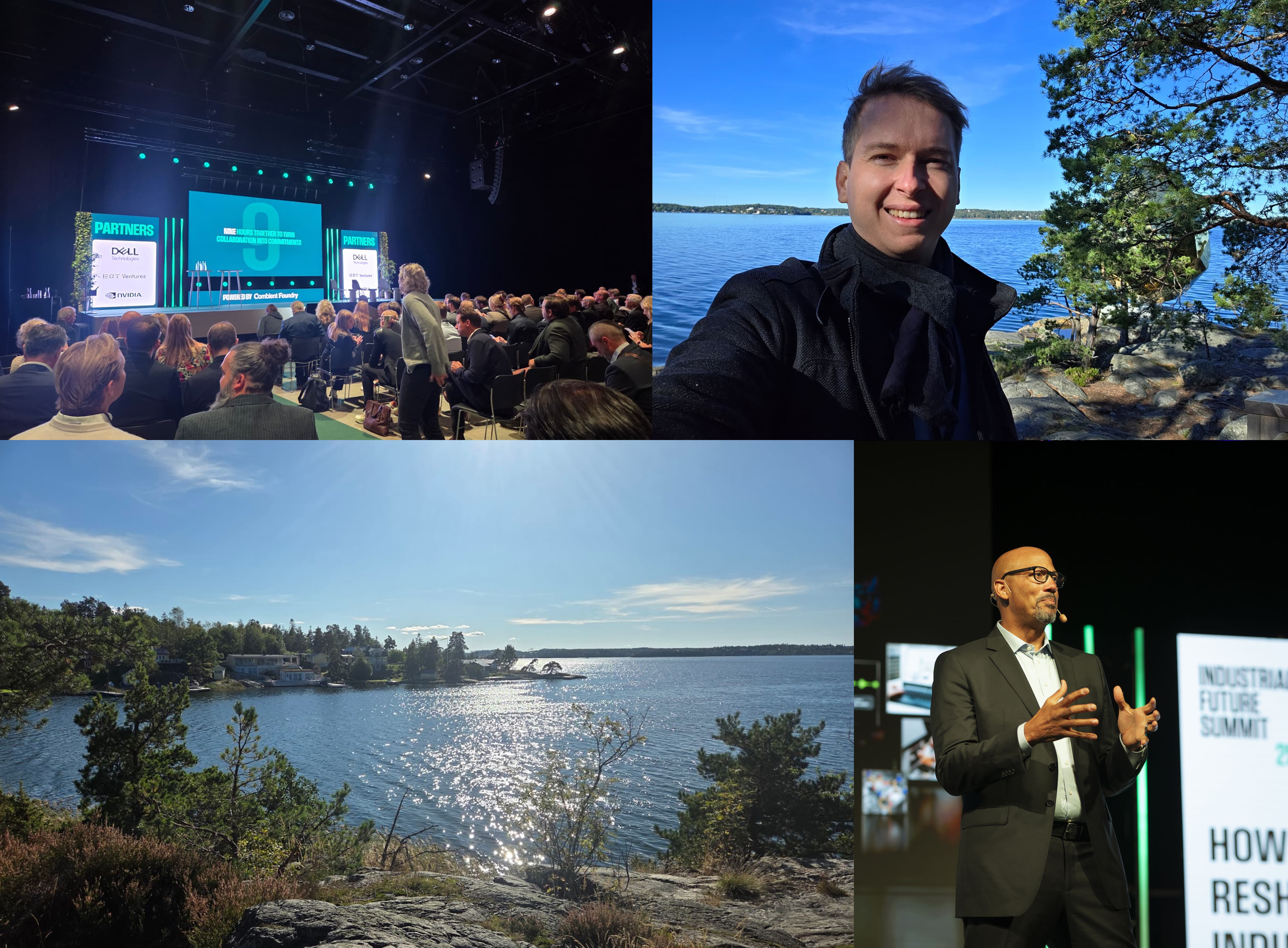
„Speed is a leadership choice”
The first program item, a fireside chat with Marcus Wallenberg (SEB) and Tanuja Randery (AWS), really set the tone. I appreciated the honesty with which both of them spoke. On the one hand, the use of AI in companies is growing rapidly, but on the other hand, Europe often struggles with implementation. While China and the U.S. have already marched ahead, we are still busy debating.
One phrase from Tanuja Randery stuck with me: “Speed is a leadership choice.” Speed is not a given, but a conscious decision. I thought about the companies I work with myself. Too often, people get lost in processes and meetings instead of making bold decisions. That courage, as Randery emphasized, is what Europe needs now—not at some point in the future.
The topic of digital skills also ran like a thread through the discussion. There is simply a shortage of professionals who can handle AI, data, and new technologies with confidence. At that moment, I felt very strongly that this is not just about strategies, but about people.
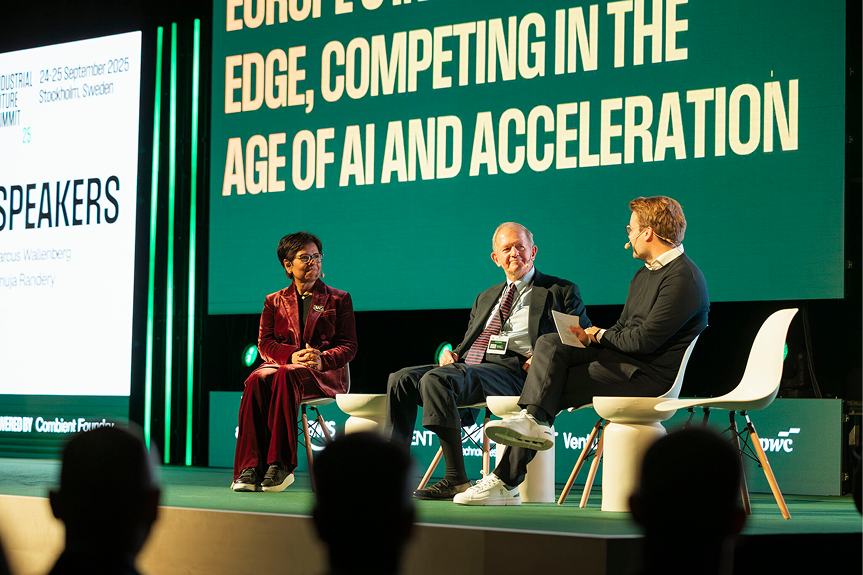
Debate on Europe’s Future
During the panel discussion with Alexander Ehrnrooth, Stefan Schrauf, Mikael Helmerson, and Maria Wasastjerna, the message became even clearer: if Europe wants to be a leader by 2030, it must become faster, more resilient, and braver.
I had to smile when the question came up whether we need China’s so-called “996” work culture—nine a.m. to nine p.m., six days a week. Clearly, that can’t be the solution. But the underlying message was serious: efficiency matters, not myths. I also found the debate about the four-day work week fascinating, because it showed how easily we get caught up in symbolic topics instead of tackling the core issue: how do we make the best use of the working time we already have?
What I especially liked was the call for customer centricity. Technology alone is worth nothing if it doesn’t solve real problems. That sense of pragmatism was what I appreciated most about the discussion.
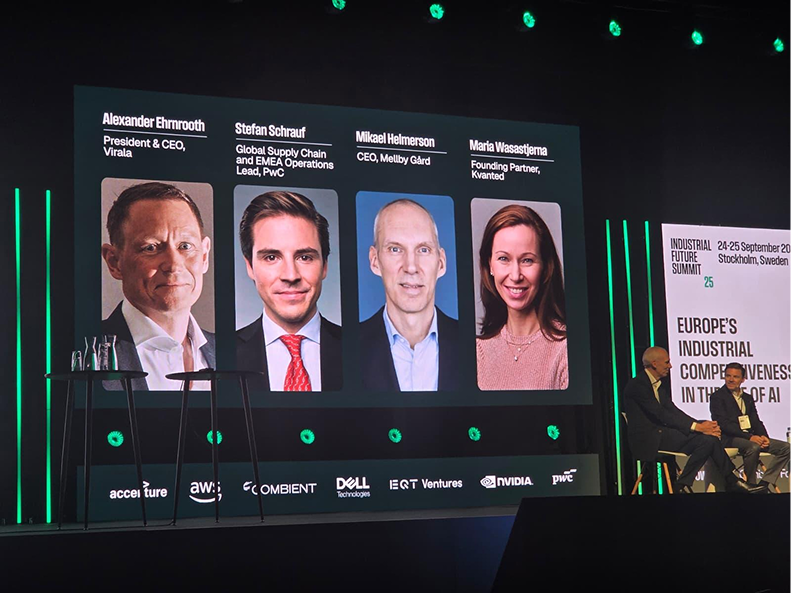
Robots That Learn
In the afternoon, I attended the session “Automation at the Tipping Point” with Peter Laurin (Piab), Michael Welle (INCAR Robotics), and Professor Danica Kragic (KTH). The focus here was on robots, automation, and the question of what the factory of the future will look like.
Since 2019, the robotics market has been growing by 19 percent annually, I learned—a figure that made me nod almost in disbelief. The drivers are clear: labor shortages, rising costs, nearshoring, and sustainability. But what fascinated me most was the outlook on humanoid robots. They are still very limited in their applications, but it’s only a matter of time before they become part of everyday factory life.
What really made me think was this: most robots today are installed in China. The U.S. is strong in core technologies. But Europe has a chance—when it comes to applications and data. I asked myself: will we be bold enough to seize this opportunity, or will we let it slip away again?
NVIDIA and the Power of Your Own Intelligence
The closing keynote was delivered by Howard Wright from NVIDIA. He spoke about AI with an energy that electrified the room. His most important advice: companies should take control of their own intelligence and build their own AI, instead of relying solely on external tools.
The example of the Swedish project Sferical AI, which connects almost the entire industry of the country, was particularly impressive. It showed what is possible when startups, established companies, and research work together. I felt as if I was catching a glimpse of a future where innovation no longer happens in silos, but in ecosystems.
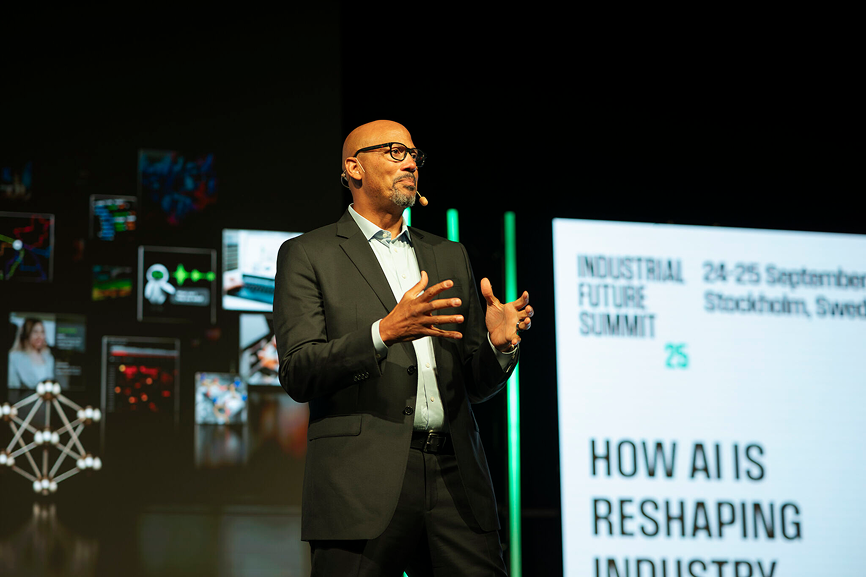
My Personal Takeaway
As I got back on the bus that evening, I felt both inspired and motivated. Inspiring was the energy, the capital, the innovative strength that are so clearly present in Europe. What I took away: speed is a leadership decision. Courage counts. Cooperation is not a nice-to-have, but a matter of survival. And above all: technology is only valuable if it solves real problems.
💡 Many thanks to all the speakers and experts - Tanuja Randery CBE, Howard Wright, Alexander Ehrnrooth, Stefan Schrauf, Mikael Helmerson, Maria Wasastjerna, Elisabeth Hörnfeldt, Sofia C., Peter Laurin, Michael Welle, Danica Kragic, Erik Swan, Ali el Hassouni, Sebastian Hjärne, Sebastian Schaaf, Mila Kostadinova and Carl Svantesson - for sharing their perspectives on the European industry.
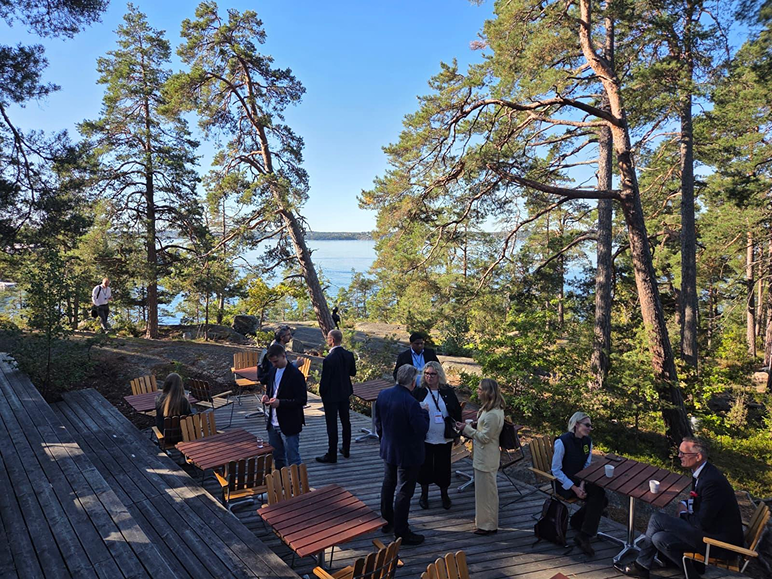
Benjamin Brockmann
Benjamin Brockmann (M. Sc., Management & Technology) founded Operations1 in 2017 together with Daniel Grobe (also M. Sc., Management & Technology). The founders developed the software solution based on various practical projects, including at the Fraunhofer Institute, and on their experience in industry, auditing and management consulting. Benjamin Brockmann has already worked for companies such as KPMG and Arthur D. Little.